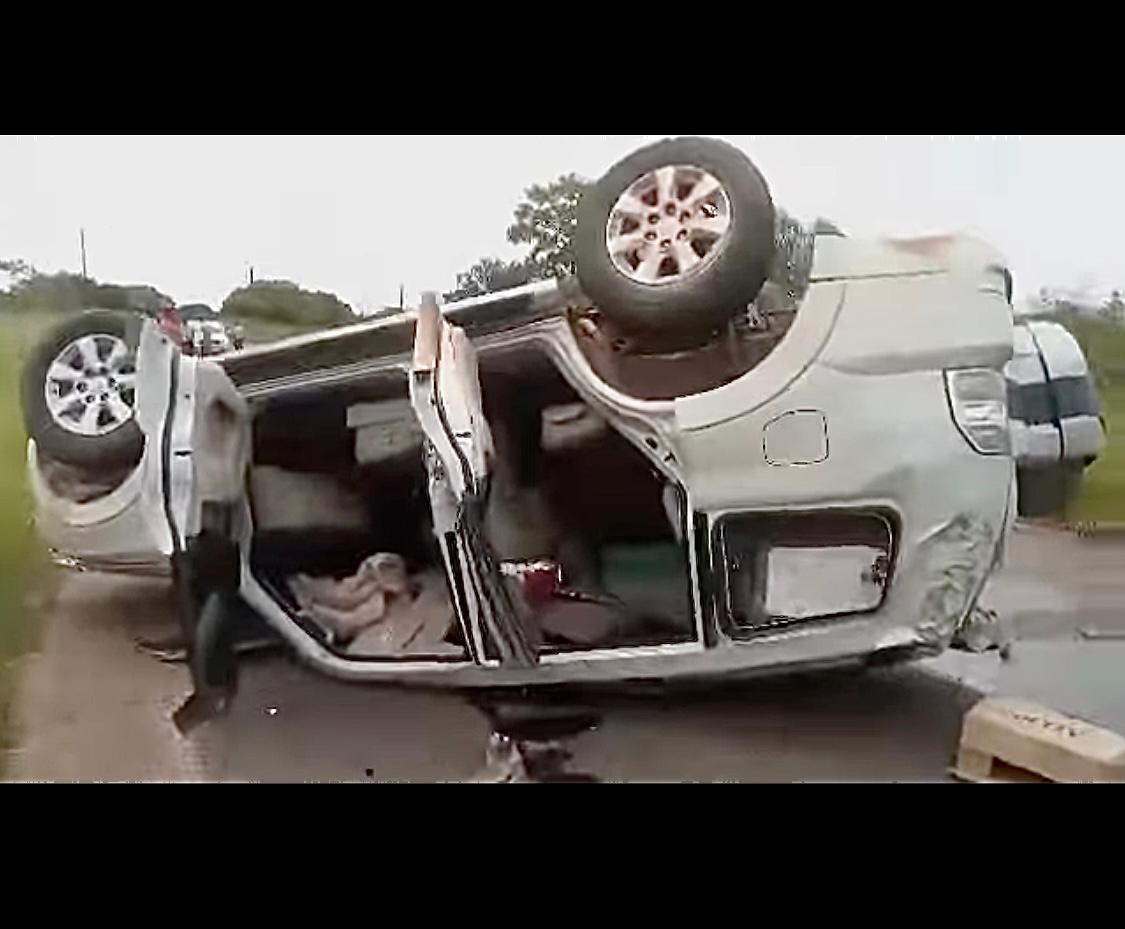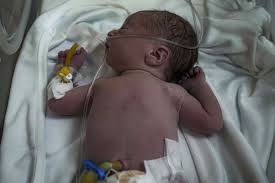What We Know About the Deadly Explosion at Bangui High School
What We Know About the Deadly Explosion at Bangui High School

On a tragic day in Bangui, the capital of the Central African Republic, an explosion at a local high school led to the deaths of over twenty students. The incident shocked the nation and raised urgent questions about safety protocols in educational institutions. This article outlines what we know so far about this devastating accident, its aftermath, and ongoing investigations.
The Explosion: What Happened?
According to official sources, the explosion occurred during school hours in one of Bangui’s most populous high schools. Initial reports suggest that the blast originated from an improperly stored explosive device, though details remain under investigation. The explosion caused significant damage to school facilities and injured dozens of students and staff.
Casualties and Immediate Response
Local hospitals reported receiving more than thirty injured individuals, many of whom were critically hurt. Sadly, more than twenty students lost their lives. Emergency services rushed to the scene, and national authorities declared a state of mourning. The community gathered in grief, while rescue operations continued for survivors trapped in the rubble.
Investigations and Security Concerns
Authorities are actively investigating the cause of the explosion. Early speculation points to possible negligence in handling hazardous materials, or accidental detonation of leftover munitions in the area. The Central African Republic government has pledged a full inquiry, involving international partners to ensure transparency.
Impact on Education and Community
This tragic event has deeply impacted Bangui’s educational community. Classes have been suspended, and parents are demanding stronger safety measures. The government announced plans to assess security protocols nationwide, emphasizing the need to protect students and staff from future incidents.
International Reactions and Aid
International organizations and foreign governments have expressed condolences and offered support. The United Nations and UNICEF have called for increased attention to school safety in conflict-affected areas like the Central African Republic, highlighting the importance of protecting children’s right to education.
Looking Forward: Lessons and Reforms
The explosion at Bangui’s high school is a tragic reminder of the vulnerability faced by educational institutions in unstable regions. Experts urge for immediate reforms, including better storage and handling of hazardous materials, enhanced emergency preparedness, and community education on safety protocols.
Further Information and Resources
- Latest News on Central African Republic
- UNICEF Central African Republic
- UN Peacekeeping Operations
- Bangui – Wikipedia
What We Know About the Deadly Explosion at Bangui High School
What We Know About the Deadly Explosion at Bangui High School

On a tragic day in Bangui, the capital of the Central African Republic, an explosion at a local high school led to the deaths of over twenty students. The incident shocked the nation and raised urgent questions about safety protocols in educational institutions. This article outlines what we know so far about this devastating accident, its aftermath, and ongoing investigations.
The Explosion: What Happened?
According to official sources, the explosion occurred during school hours in one of Bangui’s most populous high schools. Initial reports suggest that the blast originated from an improperly stored explosive device, though details remain under investigation. The explosion caused significant damage to school facilities and injured dozens of students and staff.
Casualties and Immediate Response
Local hospitals reported receiving more than thirty injured individuals, many of whom were critically hurt. Sadly, more than twenty students lost their lives. Emergency services rushed to the scene, and national authorities declared a state of mourning. The community gathered in grief, while rescue operations continued for survivors trapped in the rubble.
Investigations and Security Concerns
Authorities are actively investigating the cause of the explosion. Early speculation points to possible negligence in handling hazardous materials, or accidental detonation of leftover munitions in the area. The Central African Republic government has pledged a full inquiry, involving international partners to ensure transparency.
Impact on Education and Community
This tragic event has deeply impacted Bangui’s educational community. Classes have been suspended, and parents are demanding stronger safety measures. The government announced plans to assess security protocols nationwide, emphasizing the need to protect students and staff from future incidents.
International Reactions and Aid
International organizations and foreign governments have expressed condolences and offered support. The United Nations and UNICEF have called for increased attention to school safety in conflict-affected areas like the Central African Republic, highlighting the importance of protecting children’s right to education.
Looking Forward: Lessons and Reforms
The explosion at Bangui’s high school is a tragic reminder of the vulnerability faced by educational institutions in unstable regions. Experts urge for immediate reforms, including better storage and handling of hazardous materials, enhanced emergency preparedness, and community education on safety protocols.
Further Information and Resources
- Latest News on Central African Republic
- UNICEF Central African Republic
- UN Peacekeeping Operations
- Bangui – Wikipedia
Shocking Truth: What We Know About the Deadly Explosion at Bangui High School
Shocking Truth: What We Know About the Deadly Explosion at Bangui High School

On a tragic day in Bangui, the capital of the Central African Republic, an explosion at a local high school led to the deaths of over twenty students. The incident shocked the nation and raised urgent questions about safety protocols in educational institutions. This article outlines what we know so far about this devastating accident, its aftermath, and ongoing investigations.
The Explosion: What Happened?
According to official sources, the explosion occurred during school hours in one of Bangui’s most populous high schools. Initial reports suggest that the blast originated from an improperly stored explosive device, though details remain under investigation. The explosion caused significant damage to school facilities and injured dozens of students and staff.
Casualties and Immediate Response
Local hospitals reported receiving more than thirty injured individuals, many of whom were critically hurt. Sadly, more than twenty students lost their lives. Emergency services rushed to the scene, and national authorities declared a state of mourning. The community gathered in grief, while rescue operations continued for survivors trapped in the rubble.
Investigations and Security Concerns
Authorities are actively investigating the cause of the explosion. Early speculation points to possible negligence in handling hazardous materials, or accidental detonation of leftover munitions in the area. The Central African Republic government has pledged a full inquiry, involving international partners to ensure transparency.
Impact on Education and Community
This tragic event has deeply impacted Bangui’s educational community. Classes have been suspended, and parents are demanding stronger safety measures. The government announced plans to assess security protocols nationwide, emphasizing the need to protect students and staff from future incidents.
International Reactions and Aid
International organizations and foreign governments have expressed condolences and offered support. The United Nations and UNICEF have called for increased attention to school safety in conflict-affected areas like the Central African Republic, highlighting the importance of protecting children’s right to education.
Looking Forward: Lessons and Reforms
The explosion at Bangui’s high school is a tragic reminder of the vulnerability faced by educational institutions in unstable regions. Experts urge for immediate reforms, including better storage and handling of hazardous materials, enhanced emergency preparedness, and community education on safety protocols.
Further Information and Resources
- Latest News on Central African Republic
- UNICEF Central African Republic
- UN Peacekeeping Operations
- Bangui – Wikipedia
Devastating Tragic Truth: What We Know About the Deadly Explosion at Bangui High School
Devastating Tragic Truth: What We Know About the Deadly Explosion at Bangui High School

On a tragic day in Bangui, the capital of the Central African Republic, an explosion at a local high school led to the deaths of over twenty students. The incident shocked the nation and raised urgent questions about safety protocols in educational institutions. This article outlines what we know so far about this devastating accident, its aftermath, and ongoing investigations.
The Explosion: What Happened?
According to official sources, the explosion occurred during school hours in one of Bangui’s most populous high schools. Initial reports suggest that the blast originated from an improperly stored explosive device, though details remain under investigation. The explosion caused significant damage to school facilities and injured dozens of students and staff.
Casualties and Immediate Response
Local hospitals reported receiving more than thirty injured individuals, many of whom were critically hurt. Sadly, more than twenty students lost their lives. Emergency services rushed to the scene, and national authorities declared a state of mourning. The community gathered in grief, while rescue operations continued for survivors trapped in the rubble.
Investigations and Security Concerns
Authorities are actively investigating the cause of the explosion. Early speculation points to possible negligence in handling hazardous materials, or accidental detonation of leftover munitions in the area. The Central African Republic government has pledged a full inquiry, involving international partners to ensure transparency.
Impact on Education and Community
This tragic event has deeply impacted Bangui’s educational community. Classes have been suspended, and parents are demanding stronger safety measures. The government announced plans to assess security protocols nationwide, emphasizing the need to protect students and staff from future incidents.
International Reactions and Aid
International organizations and foreign governments have expressed condolences and offered support. The United Nations and UNICEF have called for increased attention to school safety in conflict-affected areas like the Central African Republic, highlighting the importance of protecting children’s right to education.
Looking Forward: Lessons and Reforms
The explosion at Bangui’s high school is a tragic reminder of the vulnerability faced by educational institutions in unstable regions. Experts urge for immediate reforms, including better storage and handling of hazardous materials, enhanced emergency preparedness, and community education on safety protocols.




